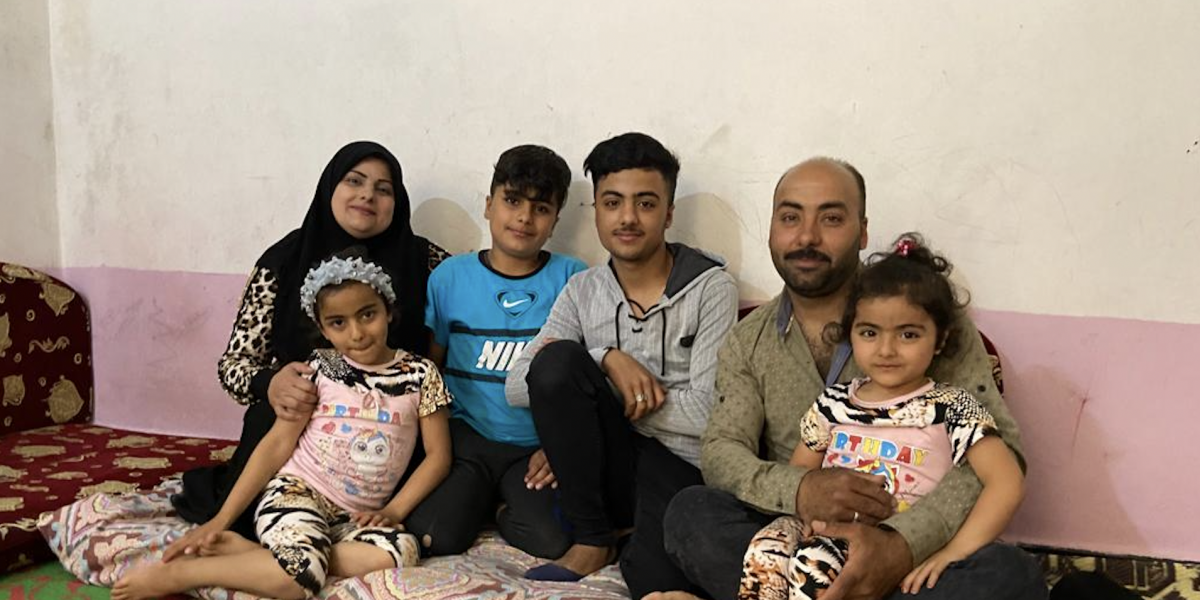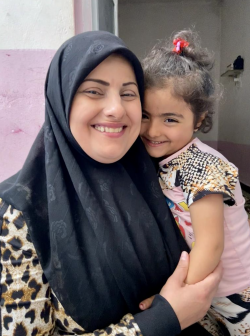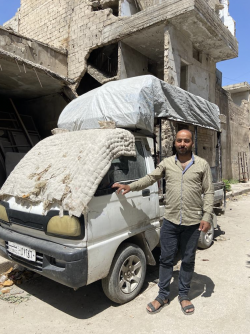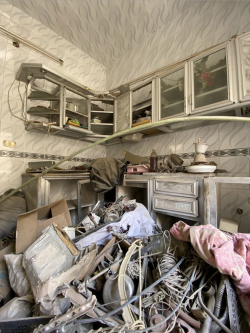JRS Syria: Psychosocial Support as a Key Intervention to Increase Survivors’ Resilience
06 June 2023|JRS MENA, Carmen Moreno


Khadiya, her husband, Abed, and five of their six children live together in a small house in one of the poorest neighbourhoods of Aleppo and one of the most affected by the civil war and the earthquakes that recently devastated part of Turkey and Syria last February. They were slowly trying to repair their home—already damaged during the war—when the disaster caused the building to collapse and destroyed not only its entire second floor, but also their hope.
During the tremors, they tried to leave the house but the building in front of them fell down and they got stuck inside. They finally managed to escape but, as they were freezing on the street without any other place to go, they came back home after a while. During the second big quake two weeks later, her house collapsed even more, and although frightened, they again had to stay.

Abed is the only source of income for the family, who used to have his own transport business using a mini truck that is also damaged. He cannot afford the necessary reparations, so he is currently working as a daily laborer when he has luck on his side and finds an opportunity.
The Jesuit Refugee Service (JRS) volunteers visited the family to accompany them, assess their needs and provide immediate support. “We received some food that really helped us, but what I value the most is the way they approached us and cared for us, we received —and still receive—the emotional support we needed”, said Abed.
Khadiya got so depressed and traumatized that was referred to our psychosocial support team to attend group sessions carefully tailored to help the survivors mitigate the effects of such calamity.
“I felt overwhelmed, I just wanted to protect my children, but I was not even able to protect myself! We were all safe, thanks God, but I couldn’t stop remembering those moments, Khadiya explains. Thanks to the sessions, I learnt how to respond and manage stress during and after these kinds of events, and I now feel stronger and more confident, but it’s not easy, it’s a long process”.
Khadiya will also start individual sessions with one of JRS social workers soon for a personalized and more advance intervention, but even more support is needed for this family to completely recover from the physical and psychological consequences of the shock. “I cannot heal completely because the rest of our house is at risk of collapsing, so I don’t feel safe”, she admits.

Their building needs to be properly assessed and repaired to ensure that nobody is in danger and the children can grow up decently. “We are all living in one room now without any windows and without electricity. It’s so small and dark that we barely see each other. We need more space and sunlight for my children to be able to study and play”, Abed worries.
Many families are still living in inhumane conditions after twelve years of conflict and an unexpected and devastating natural disaster. Various immediate and longer-term needs require to be covered. More multilateral interventions are needed for a population affected by multiple traumas already living in a protracted situation to regain control of their lives and be able to, by themselves, build a better future



